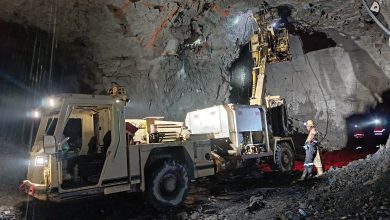
In the South African context, currently existing laws suffice to obligate sound ESG reporting compliance. Effectively, this rules out the need for further measures, which could potentially increase the regulatory burdens for mining operations
You can safely bet on Environmental, Social and Governance (ESG) compliance being mentioned at high-profile mining conferences or related events in South Africa, just as it has been observed in other countries on the continent. In some cases, if one pays close attention, the impression is that there is a gap in the form of a universal yardstick to measure compliance. Implicitly or seemingly, this line of thinking excuses non-compliance or the evasion of compliance obligations.
However, in legal terms, non-compliance is no valid defence. So, could this perspective hold water?
Demystifying ESG Compliance
Prominent South African law firm Malan Scholes Incorporated has been passionately raising awareness, where necessary, about ESG in recent years. As expected, while fielding questions from Mining Business Africa, the firm’s associate, Megan Jacobs, demystifies ESG compliance.
“ESG compliance in South Africa is simply a new collective noun for obligations which already exist,” Jacobs clarifies, referencing sections of existing regulations that mandate compliance.
Existing Regulations
In the South African mining context, ESG compliance takes the form of complying with environmental laws, the Social and Labour Plan applicable to mining rights, and governance over environmental and social obligations. Shedding more light on this, Jacobs states:
“Mining companies in South Africa must comply with the National Environmental Management Act 107 of 1998 (‘NEMA’), the Social and Labour Plan, which is approved and issued by the Department of Mineral Resources and Energy (‘DMRE’), and the Mining Charter, which gives guidance to the transformation imperatives under South African mining law (Mineral and Petroleum Resources Development Act 28 of 2002).”
In other words, this rules out the need for enacting an additional yardstick by which compliance should be measured. Already, mining companies must annually report the extent of their compliance with the Environmental Authorisation issued to them under NEMA and the Social and Labour Plan.
No Excuse for Non-Compliance
In view of this, there is no excuse for non-compliance. Failure to meet environmental and social obligations — whether deliberate or inadvertent — can lead to the withdrawal or cancellation of mining rights and environmental permission by the DMRE, as well as the laying of criminal charges against directors of non-compliant mining companies. Moreover, DMRE inspectors are mandated with sweeping powers to access mining areas and investigate alleged non-compliance.
Otherwise, Potential Unintended Consequences…
On the whole, Jacobs asserts that, thus far, changes to current prescripts to enhance compliance are not necessary. Moreover, further changes could have the unintended consequence of increasing regulatory burdens and raising operational costs — a concern repeatedly voiced by mining operators. The question is: If it’s not broken, why fix it?
Malan Scholes Incorporated is a highly regarded law firm, active across several African countries, with mining companies among its most prominent clientele.






